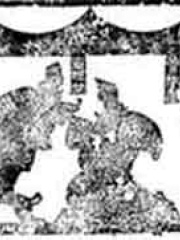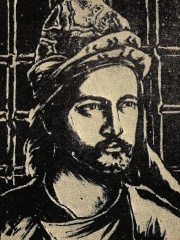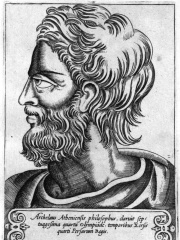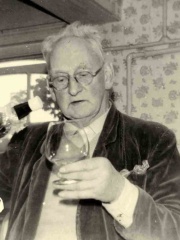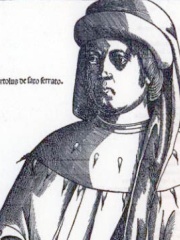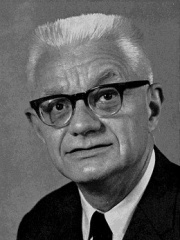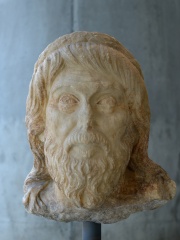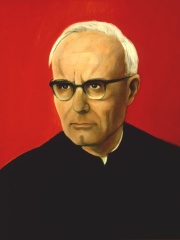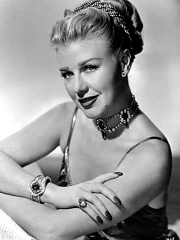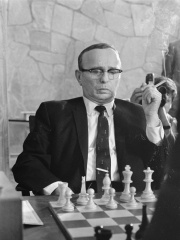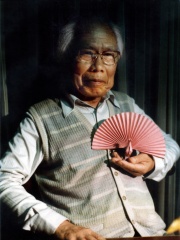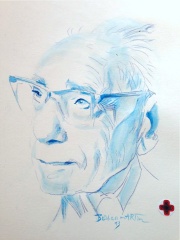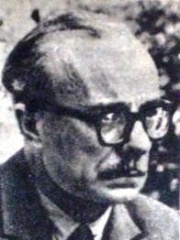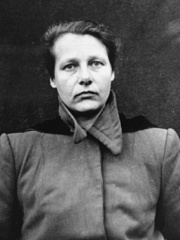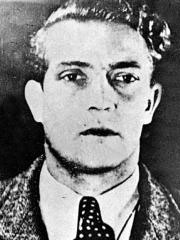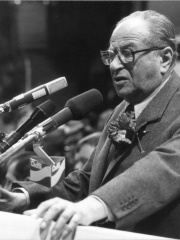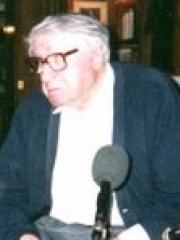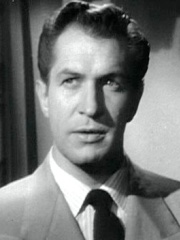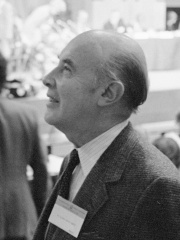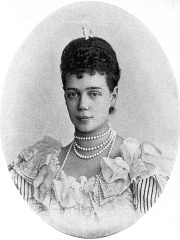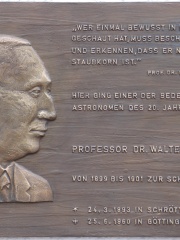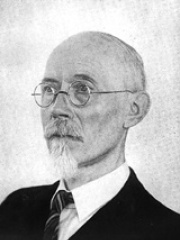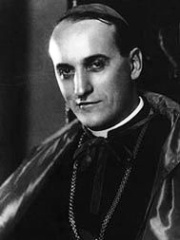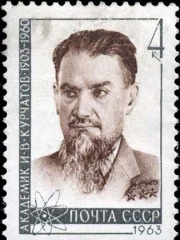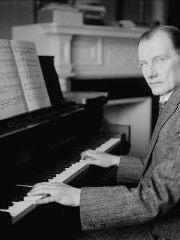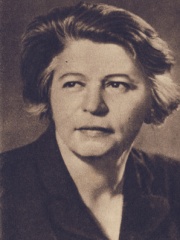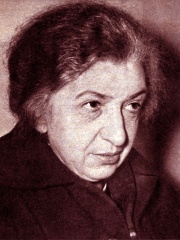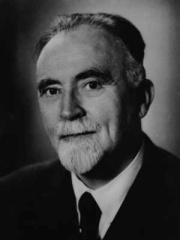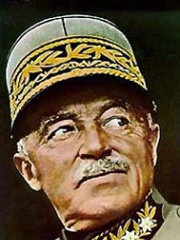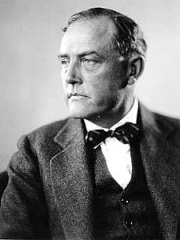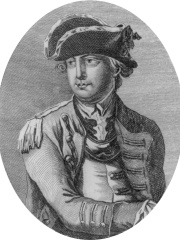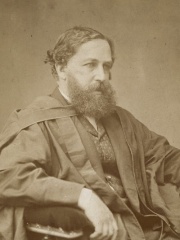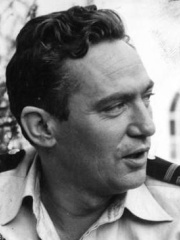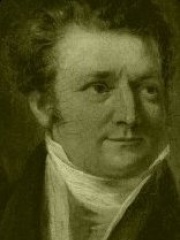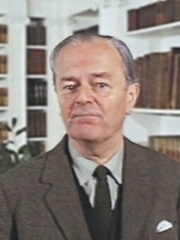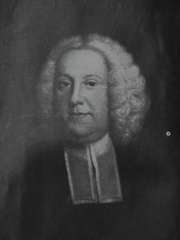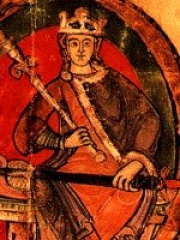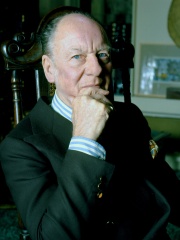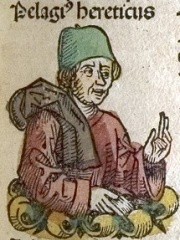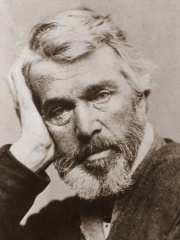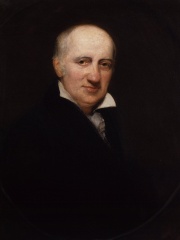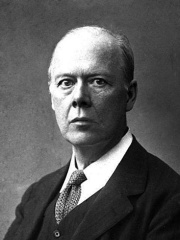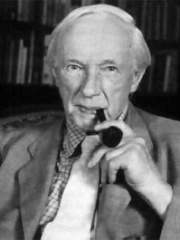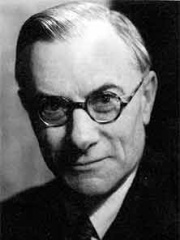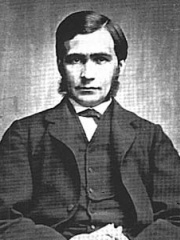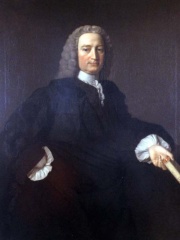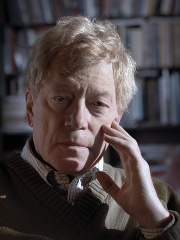PHILOSOPHER
J. L. Austin
1911 - 1960
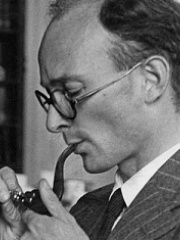
 J. L. Austin
J. L. Austin
John Langshaw Austin (26 March 1911 – 8 February 1960) was an English philosopher of language and leading proponent of ordinary language philosophy, best known for developing the theory of speech acts. Austin pointed out that we use language to do things as well as to assert things, and that the utterance of a statement like "I promise to do so-and-so" is best understood as doing something—here, making a promise—rather than making an assertion about anything; hence the title of one of his best-known works, How to Do Things with Words (1955). Austin, in formulating this theory of speech acts, mounts a significant challenge to the philosophy of language, far beyond merely elucidating a class of morphological sentence forms that function to do what they name. Read more on Wikipedia
His biography is available in 41 different languages on Wikipedia (up from 40 in 2024). J. L. Austin is the 396th most popular philosopher (down from 385th in 2024), the 898th most popular biography from United Kingdom (down from 743rd in 2019) and the 21st most popular British Philosopher.
Austin is most famous for his work in the philosophy of language, including his theory of speech acts.
Memorability Metrics
Page views of J. L. Austin by language
Among PHILOSOPHERS
Among philosophers, J. L. Austin ranks 396 out of 1,267. Before him are Guan Zhong, Shahab al-Din Yahya ibn Habash Suhrawardi, Haji Bektash Veli, Saadia Gaon, Archelaus, and A. S. Neill. After him are Bartolus de Saxoferrato, Anne Conway, Carl Gustav Hempel, Siger of Brabant, Plutarch of Athens, and Karl Rahner.
Most Popular Philosophers in Wikipedia
Go to all RankingsGuan Zhong
720 BC - 645 BC
HPI: 68.47
Rank: 390
Shahab al-Din Yahya ibn Habash Suhrawardi
1155 - 1191
HPI: 68.46
Rank: 391
Haji Bektash Veli
1209 - 1271
HPI: 68.44
Rank: 392
Saadia Gaon
882 - 942
HPI: 68.42
Rank: 393
Archelaus
500 BC - 430 BC
HPI: 68.42
Rank: 394
A. S. Neill
1883 - 1973
HPI: 68.40
Rank: 395
J. L. Austin
1911 - 1960
HPI: 68.39
Rank: 396
Bartolus de Saxoferrato
1313 - 1357
HPI: 68.37
Rank: 397
Anne Conway
1631 - 1679
HPI: 68.32
Rank: 398
Carl Gustav Hempel
1905 - 1997
HPI: 68.26
Rank: 399
Siger of Brabant
1240 - 1284
HPI: 68.25
Rank: 400
Plutarch of Athens
350 - 431
HPI: 68.19
Rank: 401
Karl Rahner
1904 - 1984
HPI: 68.19
Rank: 402
Contemporaries
Among people born in 1911, J. L. Austin ranks 54. Before him are Ginger Rogers, Samuel Reshevsky, Akira Yoshizawa, Bernard Katz, Ernesto Sabato, and Herta Oberheuser. After him are Gustav Wagner, Bruno Kreisky, Cantinflas, Henri Troyat, Vincent Price, and Alfonso García Robles. Among people deceased in 1960, J. L. Austin ranks 22. Before him are Grand Duchess Xenia Alexandrovna of Russia, Walter Baade, Antonie Pannekoek, Aloysius Stepinac, Igor Kurchatov, and Ernst von Dohnányi. After him are Ana Pauker, Clara Haskil, August Kopff, Henri Guisan, Victor Sjöström, and Héctor Castro.
Others Born in 1911
Go to all RankingsGinger Rogers
ACTOR
1911 - 1995
HPI: 69.23
Rank: 48
Samuel Reshevsky
CHESS PLAYER
1911 - 1992
HPI: 68.66
Rank: 49
Akira Yoshizawa
ARTIST
1911 - 2005
HPI: 68.65
Rank: 50
Bernard Katz
BIOLOGIST
1911 - 2003
HPI: 68.57
Rank: 51
Ernesto Sabato
WRITER
1911 - 2011
HPI: 68.46
Rank: 52
Herta Oberheuser
PHYSICIAN
1911 - 1978
HPI: 68.44
Rank: 53
J. L. Austin
PHILOSOPHER
1911 - 1960
HPI: 68.39
Rank: 54
Gustav Wagner
MILITARY PERSONNEL
1911 - 1980
HPI: 68.38
Rank: 55
Bruno Kreisky
POLITICIAN
1911 - 1990
HPI: 68.30
Rank: 56
Cantinflas
ACTOR
1911 - 1993
HPI: 68.15
Rank: 57
Henri Troyat
WRITER
1911 - 2007
HPI: 68.11
Rank: 58
Vincent Price
ACTOR
1911 - 1993
HPI: 68.03
Rank: 59
Alfonso García Robles
DIPLOMAT
1911 - 1991
HPI: 67.99
Rank: 60
Others Deceased in 1960
Go to all RankingsGrand Duchess Xenia Alexandrovna of Russia
POLITICIAN
1875 - 1960
HPI: 71.41
Rank: 16
Walter Baade
ASTRONOMER
1893 - 1960
HPI: 71.15
Rank: 17
Antonie Pannekoek
ASTRONOMER
1873 - 1960
HPI: 71.01
Rank: 18
Aloysius Stepinac
RELIGIOUS FIGURE
1898 - 1960
HPI: 70.51
Rank: 19
Igor Kurchatov
PHYSICIST
1903 - 1960
HPI: 69.59
Rank: 20
Ernst von Dohnányi
COMPOSER
1877 - 1960
HPI: 68.95
Rank: 21
J. L. Austin
PHILOSOPHER
1911 - 1960
HPI: 68.39
Rank: 22
Ana Pauker
POLITICIAN
1893 - 1960
HPI: 68.21
Rank: 23
Clara Haskil
MUSICIAN
1895 - 1960
HPI: 68.12
Rank: 24
August Kopff
ASTRONOMER
1882 - 1960
HPI: 67.97
Rank: 25
Henri Guisan
MILITARY PERSONNEL
1874 - 1960
HPI: 67.91
Rank: 26
Victor Sjöström
FILM DIRECTOR
1879 - 1960
HPI: 67.87
Rank: 27
Héctor Castro
SOCCER PLAYER
1904 - 1960
HPI: 67.71
Rank: 28
In United Kingdom
Among people born in United Kingdom, J. L. Austin ranks 898 out of 8,785. Before him are Charles Lee (1731), Bernard Hill (1944), William Stanley Jevons (1835), A. S. Neill (1883), Steve Harris (1956), and Peter Finch (1916). After him are John Frederic Daniell (1790), Thomas Savery (1650), Kenneth Clark (1903), John Pell (1611), Malcolm IV of Scotland (1141), and John Gielgud (1904).
Others born in United Kingdom
Go to all RankingsCharles Lee
MILITARY PERSONNEL
1731 - 1782
HPI: 68.43
Rank: 892
Bernard Hill
ACTOR
1944 - 2024
HPI: 68.42
Rank: 893
William Stanley Jevons
ECONOMIST
1835 - 1882
HPI: 68.41
Rank: 894
A. S. Neill
PHILOSOPHER
1883 - 1973
HPI: 68.40
Rank: 895
Steve Harris
MUSICIAN
1956 - Present
HPI: 68.39
Rank: 896
Peter Finch
ACTOR
1916 - 1977
HPI: 68.39
Rank: 897
J. L. Austin
PHILOSOPHER
1911 - 1960
HPI: 68.39
Rank: 898
John Frederic Daniell
CHEMIST
1790 - 1845
HPI: 68.36
Rank: 899
Thomas Savery
INVENTOR
1650 - 1715
HPI: 68.36
Rank: 900
Kenneth Clark
HISTORIAN
1903 - 1983
HPI: 68.36
Rank: 901
John Pell
MATHEMATICIAN
1611 - 1685
HPI: 68.35
Rank: 902
Malcolm IV of Scotland
POLITICIAN
1141 - 1165
HPI: 68.34
Rank: 903
John Gielgud
ACTOR
1904 - 2000
HPI: 68.34
Rank: 904
Among PHILOSOPHERS In United Kingdom
Among philosophers born in United Kingdom, J. L. Austin ranks 21. Before him are Pelagius (360), Thomas Carlyle (1795), William Godwin (1756), Houston Stewart Chamberlain (1855), G. E. Moore (1873), and A. S. Neill (1883). After him are Anne Conway (1631), E. H. Carr (1892), Thomas Hill Green (1836), Francis Hutcheson (1694), John of Salisbury (1110), and Roger Scruton (1944).
Pelagius
360 - 420
HPI: 72.38
Rank: 15
Thomas Carlyle
1795 - 1881
HPI: 71.05
Rank: 16
William Godwin
1756 - 1836
HPI: 70.80
Rank: 17
Houston Stewart Chamberlain
1855 - 1927
HPI: 70.73
Rank: 18
G. E. Moore
1873 - 1958
HPI: 70.00
Rank: 19
A. S. Neill
1883 - 1973
HPI: 68.40
Rank: 20
J. L. Austin
1911 - 1960
HPI: 68.39
Rank: 21
Anne Conway
1631 - 1679
HPI: 68.32
Rank: 22
E. H. Carr
1892 - 1982
HPI: 68.14
Rank: 23
Thomas Hill Green
1836 - 1882
HPI: 68.05
Rank: 24
Francis Hutcheson
1694 - 1746
HPI: 67.91
Rank: 25
John of Salisbury
1110 - 1180
HPI: 67.49
Rank: 26
Roger Scruton
1944 - 2020
HPI: 67.07
Rank: 27
